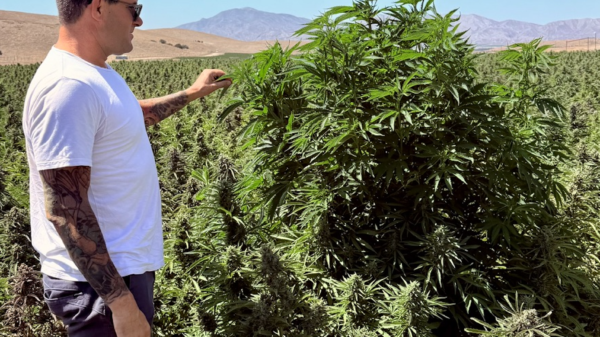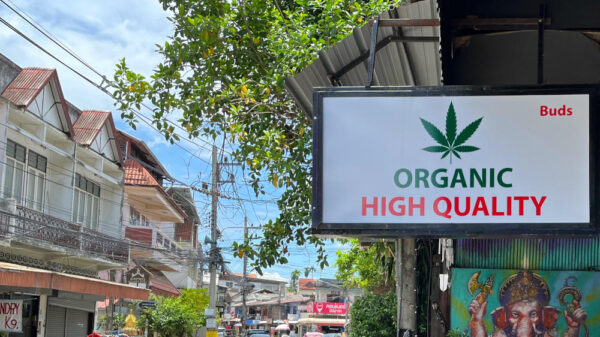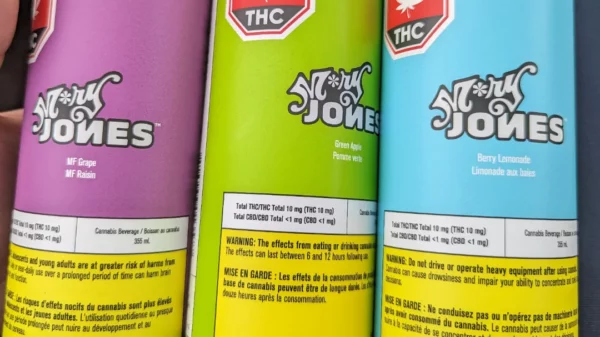Unless you’ve been living under a rock, you’d have heard of the famous delta-9, otherwise known as marijuana, weed, pot, and cannabis. However, the cannabis plant is so much more than that.
There are over 100 cannabinoids in a weed plant, and delta-9 THC is just one of them. Others include the equally famous CBD (cannabidiol), CBN, CBG, and delta-8.
They are extremely similar in chemical composition and only one thing sets them apart structurally, which is the position of the double bond: two atoms bonded by two pairs of four electrons. In addition, while the effects of consuming both are similar, delta-9 is significantly more potent.
Let’s take a look at what exactly both these compounds are and their similarities and differences when it comes to effects and legislation.
What are delta-8 and delta-9?
Both delta-8 and 9 are cannabinoids found in the cannabis plant, but the effects of delta-9 THC, otherwise known as marijuana, are about three to four times more potent than delta-8.
Both compounds are found throughout the plant but it is the most concentrated in the flowers, or “buds.” These compounds work by interacting with our body’s endocannabinoid system, or ECS, a complex network that controls many functions such as our immune systems, appetite, mood, memory, and pain.
They work by binding to two specific receptors in our brain, the CB1 and CB2 receptors. The CB1 receptors are found in the brain, spine, and some organs and tissues. The CB2 receptors are found on the white blood cells, tonsils, and spleen.
The effects of delta-8 and 9 on our receptors and ECS causes the typical “high” associated with marijuana use. While delta-9 is found naturally in cannabis plants, delta-8 is less prevalent but it can be synthetically manufactured from a process called isomerization.
This process involves extracting CBD from the cannabis plant using a solvent like carbon dioxide or ethanol. Then, the extract undergoes a chemical reaction, changing the molecular structure and turning it into delta-8.
Read more: Schedule I to III: The U.S. cannabis industry’s path to legalization
Read more: CBD relieves anxiety better than THC without paranoia, study shows

Via Precision Extraction
Effects of delta-8 and delta-9
As mentioned, delta-8 is significantly less potent than delta-9. Recreational marijuana users that consume delta-9 often report euphoria, a sense of relaxation, perception of time, changes in motor control, and increased sensory perception. However, the downside is that frequent and long-term use of delta-9 can result in negative side effects like anxiety and paranoia.
Delta-8 on the other hand, is considered way less potent, resulting in milder psychoactive effects. It is an excellent alternative for those seeking to consume THC without an intense high.
Potential side effects of using delta-9 include a dry mouth, increased heart rate, anxiety, red eyes, and impaired motor coordination, while in delta-8 these reactions are non-existent or way milder.
Potential health benefits of delta-8 and delta-9
Cannabis has been used for its reported medicinal benefits for thousands of years. Some of the medical uses include appetite stimulation, controlling nausea, and pain management.
Appetite stimulation
Cannabis is often used medically to stimulate appetite, and although the jury is still out on the exact reason why, it was found that THC interacts with our receptors to regulate our sense of smell and taste, promoting the hormone ghrelin, which stimulates hunger.
This phenomenon, affectionately dubbed the “munchies”, is why cannabis is often used to increase appetite in patients with cancer, HIV/AIDs, and anorexia.
Nausea reduction
The interaction of the cannabinoids with our endocannabinoid system can reduce nausea and vomiting. Clinical evidence supports the use of cannabis in treating nausea, especially in chemotherapy patients.
U.S. Food and Drug Administration (FDA) has approved Some synthetic drugs containing delta-9 THC. Dronabinol, for instance, can treat nausea, weight loss, and poor appetite.
Pain Relief
Cannabis shows potential pain-relieving properties, especially in chronic pain from conditions such as fibromyalgia, multiple sclerosis, and arthritis. Its anti-inflammatory properties also contribute to the overall effectiveness as a treatment for chronic pain.
Legalization
Although the compound will soon be reclassified from Schedule I to Schedule III, delta-9 still remains federally illegal. However, as of now, 24 states have approved cannabis for recreational use and 38 states for medical use.
Certain countries like Canada, Mexico, and Malta, have legalized delta-9 nationwide, but it still remains a controlled substance in most countries and sale, possession, and consumption can carry hefty penalties including criminal charges and jail time.
Delta-8, on the other hand, is sitting in a gray area. The 2018 Farm Bill stipulates that a hemp product has to contain under 0.03% THC to be legal. Therefore, if a delta-8 product contains the legal amount of THC, it technically should be legal. However, many states treat delta-8 as they would delta-9, making its use illegal.














John
October 15, 2024 at 5:05 am
Thank you for sharing this!